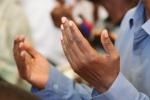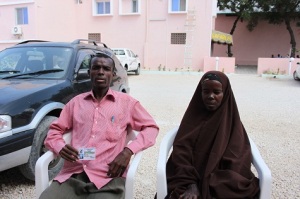 I was born in Kenya in a city called Mombasa, but have lived majority of my life in England. My mother was born in south east coast of Somalia in a small city called Brava. Brava has a real history going back to the 16th century in which it was ruled by the Portuguese during the ‘Battle of Brawa’ up until the civil war in 1991, in which majority of the Bravanese people have relocated in other countries and cities but majority to Mombasa. Having families who went Mombasa back and forth for trading and business before the war outbreak of the war, some decided to stay there and build homes to settle.
I was born in Kenya in a city called Mombasa, but have lived majority of my life in England. My mother was born in south east coast of Somalia in a small city called Brava. Brava has a real history going back to the 16th century in which it was ruled by the Portuguese during the ‘Battle of Brawa’ up until the civil war in 1991, in which majority of the Bravanese people have relocated in other countries and cities but majority to Mombasa. Having families who went Mombasa back and forth for trading and business before the war outbreak of the war, some decided to stay there and build homes to settle.
We moved back to Brava two years after I was born. I hardly recall anything during that period and asked my mother to help me fill the gap in my mind, but nothing significant happen other than I overdosed myself diabetic medicines which were lying around the house! Luckily I’m still alive!
In 1991 when my family escaped from the war, we returned back to Kenya and planned to settle down there for good. She recalls vividly the events that had taken place, and how the bombs and shootings woke up everyone around the neighbourhood. It was such shocking experience for her and her first priority like any other mother was the safety of their children.
It was with Allah’s help and might that we had help escape from the war. I can see her eyes starting to fill with tears as she said “we had to leave some people behind” the boat was small and could not carry a lot of people. She admitted in to saying where was sailing for 2 days trying to reach the coast of Mombasa before we managed to get help from the Kenyan people. When we got to Mombasa we had a place to stay as my grandfather built 3 homes from the trading and business he used to do.
Later that year I was put into government school in Mombasa and we were quickly starting to settle in the country. We had to swiftly get to terms with everything around the country because my parents realised that it was not the same country or environment they were living in before. As I thought everything was going well, I started making new friends, I had gotten used to the area i was living in and everything was just about working out. Little did I know that another journey was about to take place.
In 1992 we moved to Saudi Arabia where my father was working. This was another major happening in our life cycle when my mother had her 3rd child later that year. When I arrived it was a totally new surrounding, new people, new environment and new culture. I suffered a little of a culture shock in Saudi, I didn’t want to go school because I felt betrayed by my parents because I had left my friends behind in Mombasa. I was homesick and wanted to go back to Mombasa and see my friends and go back to the school that I had friends. I didn’t want the process of making friends again, building relationship because it took me longer than I thought it would. I had difficulty understanding a new language and difficulty integrating with people.
After a year in Saudi Arabia – in February 1993 we arrived in the UK, in search of a more stable life than what we experienced before. When we got to London that is when my life changed completely. I had started school again after much persuasion from my mum. I was happy again.
20 years on I ask my parents about the life before the civil war in Somalia, and most of the time they can’t but help have nostalgia. They described life as being very natural and everyone living together in total harmony. Families where all living in close proximity to each other so everyone had help from the small community they were living in. During Ramadan food was shared around each house sparing no one as there was no worry about families left in hunger. Doors would be open from morning until late evening as people had no worries about security issues, people living in total trust with each other created a real unity amongst one another.
My parents now realise the situation in Brava is no longer the same, friends have passed away, and some have relocated to America and others Western European countries. We try to go back to Mombasa as often as possible as that is we have homes and family members that we’ve known since we were living in Brava. Mombasa has changed over the years; it has now become one of the major tourist attractions in Africa because of its weather, beaches, food and lifestyle – all enjoyed by many people.
Home is where the heart is, is definitely a true declaration, although living in London for most of my life – it does not compare to being at home where you have extended family and where the lifestyle is more suited to the culture we’ve originally inherited to.
By Mohamed Mohamed
 Friday 11th May 2012
Friday 11th May 2012











 It is with the mercy and grace of Allah that he has given us the opportunity to live and witness another Ramadan. We hope and pray that he gives us the chance to witness many more Ramadan and Eid like the one just past.
It is with the mercy and grace of Allah that he has given us the opportunity to live and witness another Ramadan. We hope and pray that he gives us the chance to witness many more Ramadan and Eid like the one just past.

